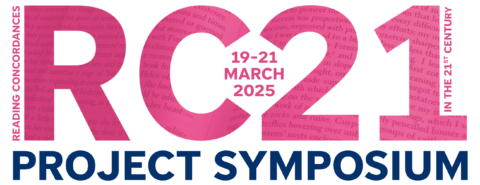#RC21 Marc Kupietz: Scaling Concordancing: KorAP’s Goals, Key Features, and Extensibility Strategies
Date: 21. March 2025Time: 14:45 – 15:30Location: Kollegienhaus, Universitätsstraße 15, 91054 Erlangen
Join us for the RC21 Project Symposium, where invited speakers and project team members will present their work on methodology and applications of concordance analysis!
Marc Kupietz: »Scaling Concordancing: KorAP’s Goals, Key Features, and Extensibility Strategies«
Abstract:
One of the long-term missions of the Leibniz Institute for the German Language (IDS) in Mannheim has been to continuously lay the foundations for empirically grounded research in German linguistics. This involves both the creation of electronic corpora, which the IDS has been making publicly available since the late 1960s, and the development and dissemination of concordancing tools such as REFER (introduced in 1983), COSMAS (online since 1996), and now KorAP, to facilitate access to corpus data for a wide range of linguistic users and applications.
KorAP, developed primarily at IDS since 2011 and publicly accessible since 2017, serves as the primary interface for over 50,000 registered users to access the German Reference Corpus (DeReKo). It is also used with other national and reference corpora. The overarching goal of KorAP's development has been to create a sustainable platform for the next 25 years, capable of supporting an essentially unlimited amount of primary data. Key features of KorAP include user-definable virtual corpora, a fine-grained mapping of IPR and licensing restrictions to maximize corpus usability while respecting rights holders' interests, support for unlimited and potentially conflicting layers of POS, constituency, dependency, and other annotations, an extensible set of query languages, and full API access supported by client libraries.
My presentation will provide an overview of KorAP, covering its background, philosophy, and design principles; its intended role within the concordancer landscape; and the extended possibilities enabled by its client library for R.
Event Details
Kollegienhaus, Universitätsstraße 15, 91054 Erlangen
